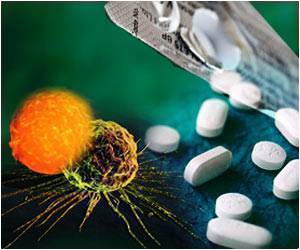Porcupine inhibitor is an anti-cancer agent which could promote the regeneration of heart tissue, reveals study.
Highlights
- Damaged heart muscle can result in congestive heart failure.
- Anti-cancer drug found to promote regeneration of damaged heart muscle.
- Porcupine inhibitor is an anti-cancer drug that can be further tested clinically for using as a regenerative agent.
Most parts of the body such as blood cells and the gut lining are continuously renewed throughout life, while few parts like that of the heart cannot be renewed due to its inability to repair itself.
A heart attack may damage the heart and cause permanent scarring which may frequently result in the serious weakening of the heart known as heart failure.
Dr.Lawrence Lum, Associate Professor of Cell biology at UT Southwestern Medical Center, worked for years to develop a cancer drug that targets the Wnt signaling molecules.
Cancer drug molecules are crucial for tissue regeneration and may also frequently target the cancer. Porcupine (Porcn) enzyme is essential for the production of Wnt Proteins in humans; the enzyme is so-called porcupine because fruit-fly embryos may lack the gene which resembles a porcupine.
Dr. Lum, senior author, member of UTSW’S Hamon Center for Regenerative Science and Medicine, said, "We saw many predictable adverse effects -0 in bone and hair, for example 0- but one surprise was that the number of dividing cardiomyocytes (heart muscle cells) was slightly increased."
The research team induced a heart attack in mice and then treated them with porcupine inhibitor. The ability of the heart to pump blood was found to improve by nearly twofold when compared to untreated animals.
The research team also noticed a reduction in fibrosis, or scarring in the hearts, despite the improvement in the pumping ability of heart in the mice.
Collagen-laden scarring which occurs after a heart attack may inappropriately increase the heart size, and lead to heart failure.
Dr. Lum, a Virginia Murchison Linthicum Scholar in Medical Research and Associate Director of Basic Research at the Harold C.Simmons Comprehensive Cancer Center, said, "While fibrotic responses may be immediately beneficial, they can overwhelm the ability of the heart to regenerate in the long run. We think we have an agent that can temper this fibrotic response, thus improving wound healing of the heart."
The author additionally added that, preliminary experiments might indicate porcupine inhibitor should only be used for a short period of time after heart attack, suggesting unpleasant side effects caused by cancer drugs that must be avoided.
Dr. Lum, said, "We hope to advance a Porcn inhibitor into clinical testing as a regenerative agent for heart disease within the next year."
References:
- Jesung Moon, Huanyu Zhou, Li-shu Zhang, Wei Tan, Ying Liu, Shanrong Zhang, Lorraine K. Morlock, Xiaoping Bao, Sean P. Palecek, Jian Q. Feng, Noelle S. Williams, James F. Amatruda, Eric N. Olson, Rhonda Bassel-Duby, Lawrence Lum. Blockade to pathological remodeling of infarcted heart tissue using a porcupine antagonist. Proceedings of the National Academy of Sciences, 2017; DOI: 10.1073/pnas.1621346114
Source-Medindia
















